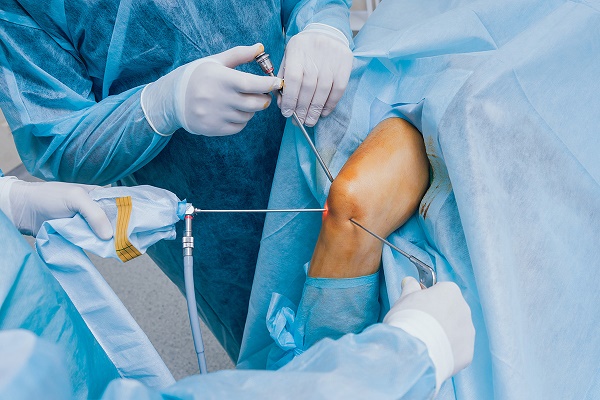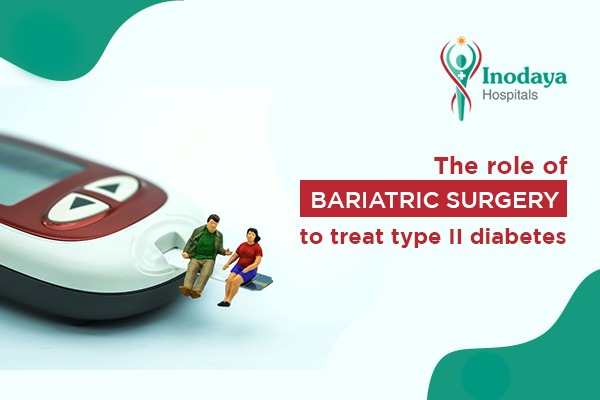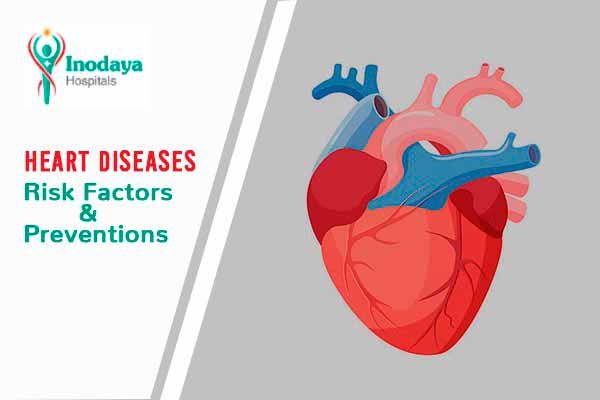Weight loss surgery or Bariatric surgery is becoming a prominent weapon against obesity and type 2 diabetes. But, how does bariatric surgery cure type 2 diabetes? Dr. Ram Mohan, the best bariatric and metabolic surgeon at Inodaya hospitals explain the role of bariatric surgery to treat diabetes.
Obesity and Type 2 Diabetes: How are they related?
Obesity is defined as the condition of having excess fat or having a high body mass index (>30). Causes of obesity can include having a sedentary lifestyle, lack of physical activity, family history, certain medications, lack of sleep, age and more. However, being overweight or obese increases your chances of developing type 2 diabetes.
Diabetes is one of the most common conditions that affect more than 150 million people worldwide. This is a condition where the blood glucose levels are persistently high. It is estimated that over 90% of people with diabetes have type 2 form, which is associated with obesity or overweight. This is because obesity causes an increased level of fatty acids and inflammation ( insulin resistance) which in turn can lead to type 2 diabetes.
Untreated diabetes can cause health risks like nerve disease, infections, kidney failure, stroke, heart problems, and high blood pressure. Current therapies, which include diet, being physically active, oral antidiabetic drugs and insulin, do not always cure diabetes.
The experts of obesity treatment recommend bariatric surgery to help you lose weight and cure diabetes if your BMI is 30 or higher.
How bariatric surgery cure diabetes?
Bariatric surgery, which was used only for treating obesity, now becomes familiar to cure type 2 diabetes. It includes not only obese people but also in normal or moderate overweight people. With bariatric surgery, people usually lose 60% to 70% of their extra weight.
Bariatric surgeons aim to remove a large part of the stomach and also changes the way food moves to the intestines. Roux-en-Y Gastric bypass, a type of weight loss surgery is the most effective surgery for people with diabetes. Roux-en-Y gastric bypass surgery controls diabetes through rapid weight loss by bypassing the small intestines and by altering the production of gut hormones leading to the improvement of insulin secretion and resistance.
After the gastric bypass surgery, the intestine becomes the primary tissue for glucose use and this decreases blood sugar levels. This surgery reduces the size of the upper stomach to a small pouch about the size of an egg. The bariatric surgeon does this by stapling off the upper section of the stomach. Research studies show that blood sugar levels get back to normal after Roux-en-Y Gastric bypass surgery.
Bariatric surgeries, which include gastric bypass and sleeve gastrectomy also play an important role in the prevention of diabetes. This means weight loss in obese and non-diabetic patients decreases their chances of developing diabetes by 60 percent – says Dr. Ram Mohan, the top bariatric surgeon.
In fact, obesity and diabetes are chronic diseases to consider. However, Bariatric surgeries are better that give short term weight loss than lifestyle changes alone. Many bariatric surgeons explain that weight loss surgery is highly expected to bring remission of diabetes in most patients.
Are you one among the people with type 2 diabetes and stage 2 or 3 obesity? Or do you think you are eligible for bariatric surgery to lose weight? Consult Dr. Ram Monahan, a skilled and experienced bariatric surgeon at Inodaya Hospitals Kakinada and explore more about your options.
Our multi-disciplinary approach helps people with difficult to control diabetes get their disease under control.
Rapid improvement in blood sugars and reduction of diabetic medications is often seen within the immediate period following bariatric surgery.






















































